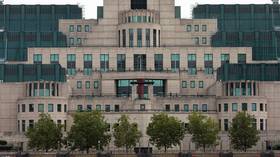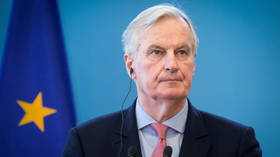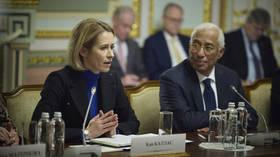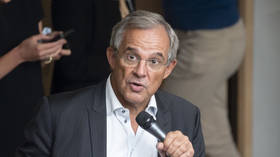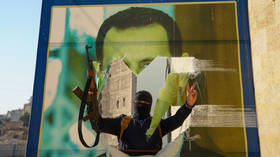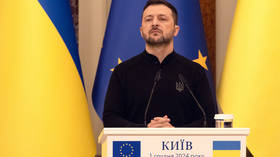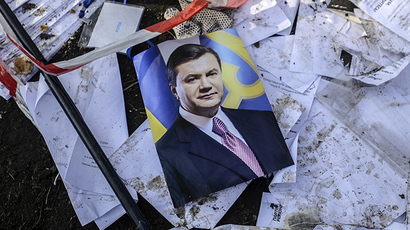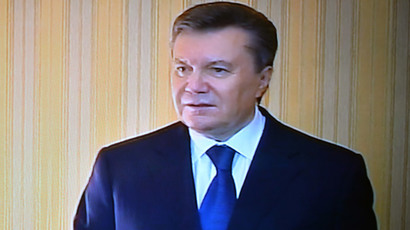‘Nothing to do with democracy’: New Ukraine regime makes swift and controversial steps
Since the takeover in Kiev, Ukraine is currently undergoing a complete government overhaul as the opposition is trying hard to establishing its own order. The swift and sometimes controversial steps raise doubts about how democratic the moves are.
Follow RT's LIVE UPDATES
The new Ukrainian authorities that assumed power just a few days ago, have taken the initiative with some decisive steps.
On Monday, the new power put missing President Yanukovich on the wanted list on suspicion of involvement in mass killings during the riots in Kiev. On Saturday, Ukraine’s Verkhovna Rada voted for the resignation of Yanukovich, saying he “isn’t fulfilling his duties as a president.”
The president, however, didn’t confirm his resignation, saying that the country is facing the threat of a return of Nazism, as over 500 regional offices of his Party of Regions have been torched by the radicals.
Meanwhile, scores of members of the now ex-ruling Party of Regions have been fired from their governmental positions in the latest measures against the old administration.
The parliament (Verkhovna Rada) has also voted to oust top figures of the Yanukovich government, including acting Foreign Minister Leonid Kozhara, acting Education Minister Dmitry Tabachnik and acting health minister Raisa Bogatyryova “due to systematic gross violations of the Constitution of Ukraine.”
Some of the ex-ruling party members were also put on the wanted list. The new order is seeking the arrest of former Incomes Minister Aleksandr Klimenko and former Prosecutor General Viktor Pshonka, who have been trying to leave Ukraine.
“A new regime is taking shape really quickly and with the use of strong measures,” Evgeny Kopatko, a sociologist, told RT. “It has nothing to do with democracy because those coming to power will go on with pursuing tough policies and they will conduct massive expansion of eastern territories.”
With the latest manhunt, dozens of pro-governmental delegates withdrew from the Ruling party, fearing reprisals as the arrests of the ministers were not over. The names of some members of the ex-ruling parties, wanted for questioning, have reportedly been circulated to airports, while vehicles are also being searched on roads around the capital.
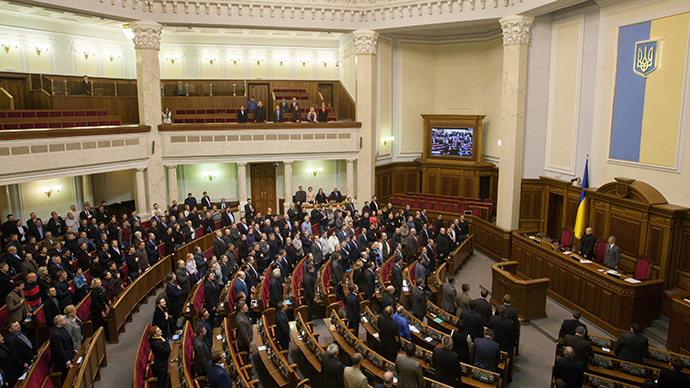
Some of those who signed their resignations did so under duress, said Aleksandr Yefremov, deputy head of the Party of Regions on Monday.
“Those who resigned told me with tears in their eyes that they were forced to do it as huge pressure was put on them and their families,” said Yefremov,
According to the politician, the trade of parliamentary positions has started in the new Ukrainian parliament.
“There are certain groups of MPs whose goal is to get a certain position. The sums proposed are enormous,” says Yefremov.
According to RT reports, some of the ministers with a different political (pro-Yanukovich) stance have even been physically attacked inside the Ukrainian Parliament . One member of the Party of Regions was severely beaten in Kiev’s Independence Square, according to the Ukrayinska Pravda newspaper. The protesters were draconian, demanding him to “make a public recantation.”
“Right now it's more about emotions rather than political rivalry,” Vladimir Fisenko, from the Center of Political Studies in Kiev told RT, “it's more important to prevent old parties from being banned completely because then the situation would lose all legitimacy.”
However, it’s not just pro-government parties that have been affected as the “new broom” has swept out the staff of the Ministry of Internal Affairs.
All the judiciary is now in the hands of a new parliament, which has now given itself the authority to appoint and sack judges.
On Monday, the Ukrainian parliament has voted to oust judges from the country’s constitutional court for violating their oath of office by allowing for the constitution to be amended in 2010. The upper house of the Ukrainian voted overwhelmingly in support of the measure.
Earlier, the head of Ukraine’s High Administrative Court, Igor Temkizhev, was also sacked.
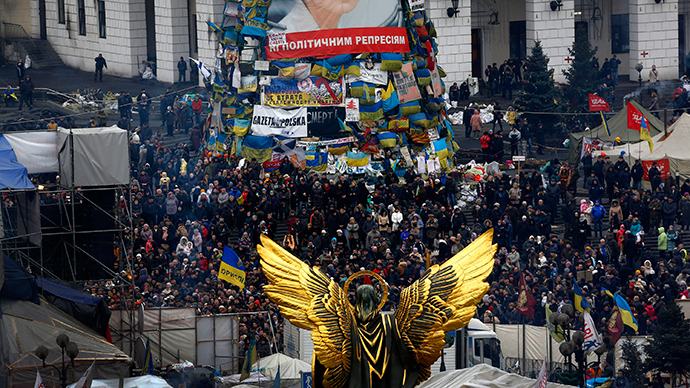
All proposals made by the new authorities were swiftly passed. Parliament immediately annulled a Yanukovich-era law, which gave legal grounds for regional use of minority languages, including Russian. The 2012 law allowed predominantly Russian-speaking regions of Ukraine to use Russian in official business, education and some other areas.
Meanwhile, there were reports that a Russian correspondent, Artyom Kol of the Vesti news program has now been put on the wanted list. The radical Right Sector group is calling on their supporters to arrest him, accusing of “besmearing the Ukrainian people.”
“The situation in Kiev is controlled by radicals, who are pursuing a very militant agenda,” Alexander Mercouris, legal expert and blogger told RT. “The opposition leaders [now: new authorities] are no longer in control of the crowds in Kiev.”
The protesters were so overwhelmed with anti-government emotions that they even dismantled many monuments from the Soviet era, when Ukraine and Russia were one country - the USSR. A famous monument called the ‘Soviet Soldier’ commemorating the collective sacrifice of the Soviet army against Nazi forces was toppled in western Ukraine on Sunday. The incident followed the dismantling of some 25 statues of Vladimir Lenin, the leader of the 1917 revolution that paved way to the creation of the USSR.
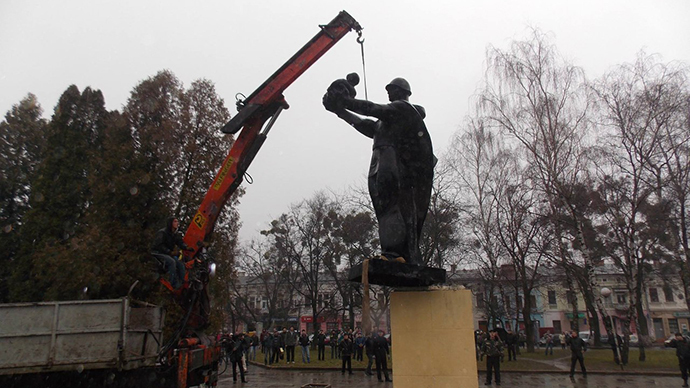
RT's Egor Piskunov reporting from Kiev says “many are now raising the question, if this is really the type of democracy so many Ukranians put their lives on the line for."
In addition to all its problems, Ukraine is nearly bankrupt as its state treasury is empty, according to Arseny Yatsenyuk, leader of the Batkivshchina (Fatherland) Party, adding Ukraine is going to seek financial help from the International Monetary Fund.
The crisis-torn country has had no prime minister since the resignation of Mikhail Azarov. Now the Ukraine’s acting President Aleksandr Turchinov has until Tuesday to cobble together a coalition cabinet and find a prime minister who will take up the challenge of keeping Ukraine from falling off the economic cliff, before an early presidential elections May 25.



